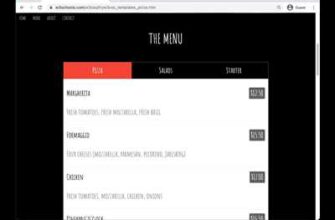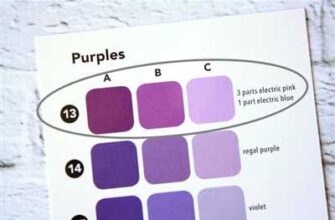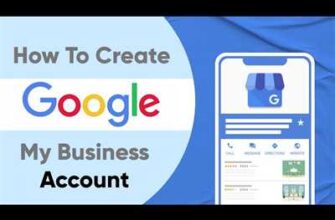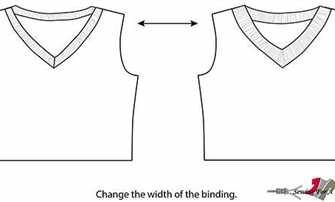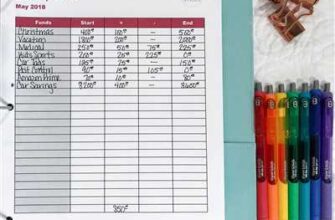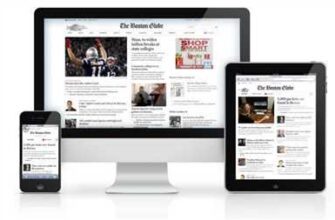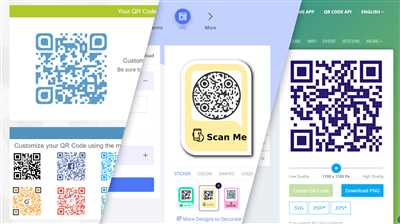
In the dynamic world of coding and technology, scan codes have become a popular way to connect to various content and features. Whether you want to make a QR code for your business, track data, or share information with your customers, scan codes offer versatile solutions.
With scan codes, you can create customized markers that link to the required information. QR codes, one of the most widely used scan codes, allow people to explore the contents by scanning them using their smartphones. JavaScript libraries like qrcode.js provide open-source options to generate and track scan codes effortlessly.
If you are in the sports or education industry, scan codes can be a valuable tool for your business. You can use scan codes to open up a world of possibilities for your customers, whether it’s accessing travel information, exploring brief company overviews, or connecting to your account for personalized content.
Create Account
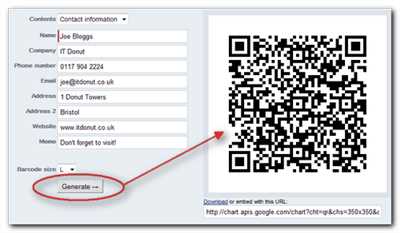
If you want to explore the features of our qr code library and share custom scan codes with your company or customers, creating an account is required. Our qr code library offers a dynamic and customized approach to generating qr codes. You can easily generate qr codes from a table or track and connect with people using qr codes. With this account, you can keep coding and explore the various options our qr code library has to offer.
When creating an account, you will be asked to provide some basic information such as your company name and education level. This information is required to tailor our solutions to your needs and provide a brief overview of your requirements. Additionally, you can choose if you want to make your qr codes publicly available or keep them private.
Once you have created an account, you will have access to a range of features, such as the ability to track the number of scans your qr codes receive and the option to modify the content of your qr codes. You will also have the option to use our javascript library, qrcode.js, which allows you to generate qr codes on the fly and pass parameters to create customized qr codes.
If you are in the travel industry, our qr code library offers a marker correction feature that ensures the qr codes can be scanned even in challenging environments such as airports or train stations. Additionally, if you are in the sports industry, our qr code library offers marker tracking to track the movements of players or objects during games or events.
In summary, creating an account provides you with access to a range of options and features that will allow you to generate and manage qr codes that fit your specific needs. Whether you are in education, marketing, or any other industry, our qr code library has solutions that can help you connect with your customers and share information effectively.
Table of Contents
In this article, we will explore how to generate scan codes using the QRCodeJS library in JavaScript. We will provide a brief overview of QR codes and how they can be used to connect people with information. Additionally, we will discuss the required parameters and options for generating customized and dynamic scan codes. We will also cover how to create a table of contents using HTML and marker links.
1. Introduction to QR Codes
1.1 What are QR codes?
1.2 How QR codes work
1.3 Benefits of using QR codes for information sharing
2. Generating Scan Codes with QRCodeJS Library
2.1 Installing QRCodeJS library
2.2 Using QRCodeJS to generate scan codes
2.3 Customizing scan codes with options
2.4 Dynamically generating scan codes
3. Creating a Table of Contents with Marker Links
3.1 Overview of marker links
3.2 How to create a marker link
3.3 Adding marker links to a table of contents
3.4 Using marker links to navigate within a document
4. Examples and Solutions
4.1 QR code solutions for sports events
4.2 QR code solutions for education and training
4.3 QR code solutions for travel and tourism
5. Conclusion
5.1 The importance of QR codes in connecting people with information
5.2 How QR codes can be used in various industries
5.3 Tips for creating effective scan codes
By the end of this article, you will have a comprehensive understanding of how to generate scan codes with QRCodeJS library, create a table of contents with marker links, and explore various solutions and applications of QR codes in different industries.
A brief overview of QRCodeJs
QRCodeJs is a JavaScript library that allows you to generate QR codes with ease. It provides a simple and flexible way to connect with your customers and share information. To use QRCodeJs, you will need to open an account on qrcodejs.com. Once you have an account, you can start creating QR codes with the library’s dynamic options.
QRCodeJs offers a wide range of features to customize your QR codes. You can choose from different types of codes, such as URL, text, SMS, email, and more. Additionally, you have the option to add a logo or change the colors of the QR code to match your company’s branding.
If you want to track the scan activity of your QR codes, QRCodeJs provides a solution for that as well. You can use the “Scan Tracking” feature to keep an eye on how many people have scanned your codes and from which locations. This information can be useful for marketing purposes or to gain insights into your customers’ preferences.
QRCodeJs also allows you to create dynamic QR codes, which means that you can update the content of the QR code even after it has been printed or shared. This feature is especially useful for businesses that frequently update their website or want to share real-time information, such as travel itineraries, sports scores, or educational content.
To generate a QR code with QRCodeJs, you will need to use the qrcode.generate() function. This function accepts various parameters, such as the content you want to encode, the error correction level, and the size of the QR code. Once you have specified the desired parameters, you can simply call the function and it will return the QR code as an image or a data URI.
In summary, QRCodeJs is a powerful and user-friendly library that allows you to generate QR codes for various purposes. Whether you want to share your company’s contact information, track the scan activity of your codes, or create dynamic QR codes, QRCodeJs has the solutions you need. Its customizable features, ease of use, and reliable performance make it a popular choice among businesses and individuals alike.
| Features | Description |
|---|---|
| Customized QR Codes | Choose from different types of QR codes and customize their appearance. |
| Scan Tracking | Track the scan activity of your QR codes and gain valuable insights. |
| Dynamic QR Codes | Update the content of your QR codes even after they have been shared or printed. |
Dynamic QR codes
Dynamic QR codes are a customized version of QR codes that allow you to create codes with unique features and options. They provide a convenient way to connect people with information, links, and data from your company or website.
With dynamic QR codes, you don’t need to do any coding or programming. Instead, you can use solutions like Issuu or qrcodejs library to generate codes on the fly. These tools give you the flexibility to create QR codes with specific parameters and features.
For example, if you want to create a dynamic QR code for travel content, you can include markers or links to specific locations on a map. This feature allows people to explore information about different places and open them directly on their smartphones.
Dynamic QR codes also have the ability to track and connect customers. For instance, if you have a table that sells sports goods and you create a QR code, you can track how many people scan the code and what items they are interested in. This information helps you keep track of your customers and make improvements to your products and services.
In addition, dynamic QR codes offer a brief overview of the contents they connect to. They can provide a description or brief information about the content, such as an article or a video. This feature helps people decide if they want to open the link and explore the contents further.
One of the useful features of dynamic QR codes is error correction. With this feature, even if the QR code is damaged or partially obscured, it can still be scanned successfully. This ability ensures that your customers can always access the information and content you want to share.
In conclusion, dynamic QR codes are a powerful tool to engage customers, provide valuable information and track their interactions. They offer a wide range of features that can be customized to fit your specific needs. Whether it’s for education, marketing, or any other purpose, dynamic QR codes are an effective way to bridge the gap between print and digital media.
Connect your customers to your content with QR Codes
QR Codes are a powerful tool to connect your customers to your content. With a simple scan, customers can access a wealth of information about your company, products, and services. By using QR Codes, you can provide your customers with a convenient and efficient way to access the information they need.
QR Codes, short for Quick Response Codes, are a type of barcode that can be scanned using a smartphone or other mobile device. Each QR Code contains a unique pattern that represents specific data, such as a website URL, contact information, or a brief message. When a customer scans the QR Code using a scanning app, their device will automatically open a browser window or app that displays the information embedded in the code.
QR Codes can be customized with your company’s branding and colors to create a unique and eye-catching design. This helps to ensure that your brand is front and center when customers interact with your QR Codes. Additionally, QR Codes can include error correction, which allows them to be scanned even if they are damaged or partially obscured.
There are many options available for generating QR Codes. If you’re a developer, you can use libraries such as qrcode.js to generate QR Codes dynamically using JavaScript. These libraries provide a range of features and options to customize your QR Codes, such as changing the size, color, and error correction level.
QR Codes can be used in a variety of industries and applications. For example, in the education sector, QR Codes can be used to provide additional information or resources for students. In the sports industry, QR Codes can be placed in stadiums or on merchandise to provide fans with access to team updates or exclusive content. In the travel industry, QR Codes can be used to provide maps, directions, or information about nearby attractions. The possibilities are endless!
By using QR Codes, you can connect your customers to your content in a seamless and efficient way. Whether you want to share product information, provide access to exclusive content, or track customer engagement, QR Codes offer a powerful solution. So, explore the possibilities and start using QR Codes to connect with your customers today!

